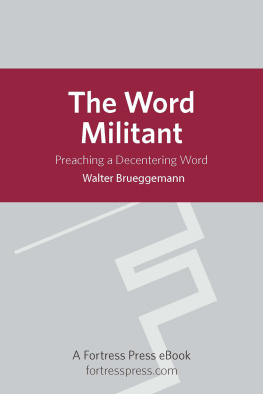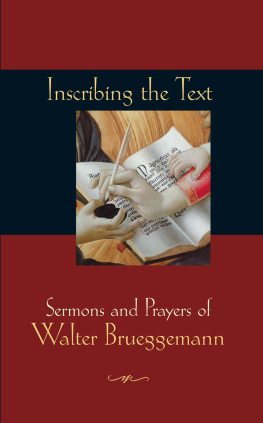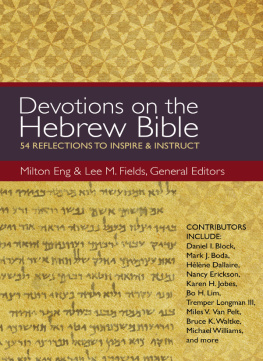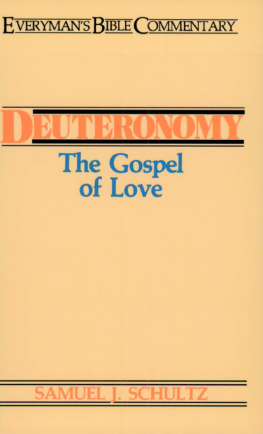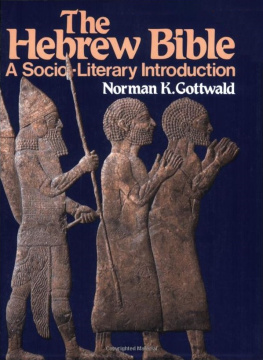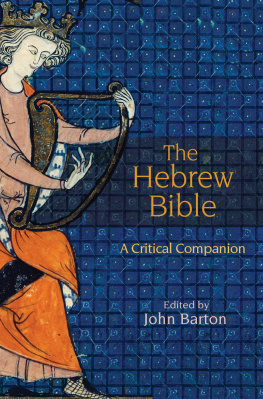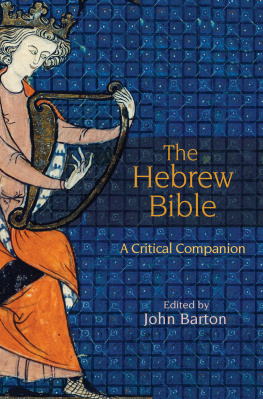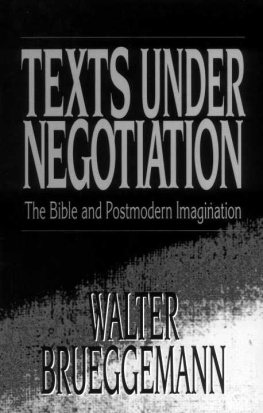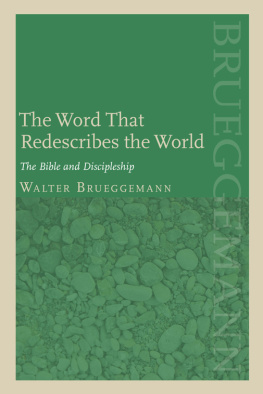
An Unsettling God:
The Heart of the Hebrew Bible
WALTER BRUEGGEMANN
Fortress Press
Minneapolis
An Unsettling God
AN UNSETTLING GOD
The Heart of the Hebrew Bible
Copyright 2009 Fortress Press, an imprint of Augsburg Fortress. All rights reserved. Except for brief quotations in critical articles or reviews, no part of this book may be reproduced in any manner without prior written permission from the publisher. Visit http://www.augsburgfortress.org/copyrights/ or write to Permissions, Augsburg Fortress, Box 1209, Minneapolis, MN 55440.
Cover image: Mikhail Larionovs Rayonist Composition: Domination of Red (1912-13) 2009 Artists Rights Society (ARS), New York / ADAGP, Paris; digital Image The Museum of Modern Art/Licensed by SCALA / Art Resource, NY.
Cover design: Paul Boehnke
Book design: PerfecType, Nashville, TN
eISBN: 9781451419535
Library of Congress Cataloging-in-Publication Data
Brueggemann, Walter.
An unsettling God : the heart of the Hebrew Bible / by Walter Brueggemann.
p. cm.
Includes bibliographical references and index.
ISBN 978-0-8006-6363-6 (alk. paper)
1. GodBiblical teaching. 2. Bible. O.T.Criticism, interpretation, etc. I. Title.
BS1192.6.B76 2009
231.76dc22
2009011355
For Tia
Contents
I am glad to express my thanks to Neil Elliott at Fortress Press for initiating this project of a revision of my work, and for his patience in bringing the project to fruition. It is appropriate that I dedicate this book on partnership to Tia Foley. She has been my partner in the completion and publication of a number of my books over a period of seven years. In more recent days we have entered into the fuller, deeper partnership of our life, and I am grateful to her on all counts.
Walter Brueggemann
September 8, 2008
T he word God is of course generic so that it can be (and has been) construed in any number of directions. In one direction, that of popular spirituality, God can be rendered as a vague force or impulse that tilts toward goodness. This direction is as ancient as Gnosticism and, in contemporary thought, can readily drift toward New Age religion. In the opposite direction, that of much classical Christian theology (of a scholastic bent or of a popular understanding of classical theology), God can be understood in terms of quite settled categories that are, for the most part, inimical to the biblical tradition. The casting of the classical tradition in a more scholastic category is primarily informed by the Unmoved Mover of Hellenistic thought and affirms, as the catechisms reflect, a God who is omniscient, omnipotent, and omnipresent, a Being completely apart from and unaffected by the reality of the world. There clearly are a variety of other options for the articulation of God on a spectrum that runs from New Age vagueness to classic settledness.
But of course, God as rendered in the Bibleand most particularly in the Christian Old Testamentdoes not conform to either the temptation of vagueness or the temptation of settledness. In contrast to both of these interpretive alternatives, God as rendered in the Old Testament is a fully articulated personal agent, with all the particularities of personhood and with a full repertoire of traits and actions that belong to a fully formed and actualized person. Such a particular person cannot settle for vagueness because the particularity has a history and an identity that remain constant over time. Such a particular person cannot accept a fixity as reflected in some forms of classical tradition, because this particular person possesses all of the dimensions of freedom and possibility that rightly belong to a personal agent. To be sure, such a rendering of God suffers all of the problematic of the scandal of particularity, as this God is embedded in the interpretive memory of ancient Israel. Thus it is common to be embarrassed about the anthropomorphic aspects of this God, so embarrassed as to want to explain away such a characterization or at least to transpose it into a form that better serves a generic notion of God. There is a common propensity, in order to deal with the embarrassment, to reduce the agency of God to force or impulse, and classical theology prefers to substitute aseity for the engagement of the personal. All such embarrassments, however, fail to do justice to the scriptural tradition. Beyond that, they fail to match the rich theological, religious, and pastoral resources that are available only through the personal and the interpersonal. While such a personal rendering of God may strike one as primitive or as supernatural, it will be clear in what follows that the personal dimensions of YHWH and the interpretive memory of ancient Israelwith all of the dimensions of faithful and less than faithful interactionis fundamental to faith and therefore cannot be explained away or transposed into any other categories.
YHWH as the God of Israel did not emerge in a vacuum, but in the old, rich theological tradition of the ancient Near East. It is clear that in its articulation of Israel, Israel both appropriated from that ancient Near Eastern tradition and transposed what it appropriated into its own distinctive articulation.commonality or distinctiveness to some great extent depends upon the impulse of the interpretive and the milieu in which the interpreter works.
Morton Smith articulated a common paradigm of ancient Near Eastern religion around six theses, and his articulation has been taken up by Norman Gottwald. That paradigm operates, according to Smith, with these convictions:
1. There is a High God who is the generative power behind all natural and human phenomena.
2. That High God is active in the world, in nature, in history, and in society. This activity eventuates in a moral order in worldly reality, a moral order sanctioned through the legal and administrative organs of society.
3. That High God is presented in terms of natural and human analogues, so that anthropomorphic articulation is already present in the common theology.
4. The High God is known to be powerful, just, and merciful. The divine power is in the service of justice. It is evident that the crisis of theodicy is inchoately present from the outset in this common theology.
5. This High God is peculiarly and definitively connected to a particular people or region. Thus the ambiguity of universal and particular is present from the outset. This also means that some contractual notion of covenant is definitional for the common tradition.
6. The High God is interpreted and represented by human agents who claim authority to voice divine purpose and will.
The accent in this common tradition is upon the sovereignty of God. There is no doubt, moreover, that Israels doxological traditionin turn taken up by the prophetsfully affirms the singular sovereignty of YHWH. And while that sovereignty is primally directed toward Israel, there is no doubt that YHWHs rule and purpose extends beyond Israel to all reality.
The Old Testament is theologically interesting and demanding, however, precisely because it is not willing to settle for the common theology; it undertakes what Norman Gottwald terms a mutation of the common theology.
Norman Gottwald has lined out in one mode what is differentiated in YHWH when compared to the common theology of the ancient Near East. Second, the authorization of human agents as representatives of YHWH, in the tradition of Israel, concerns the authority of Moses, the articulator of the Torah at Sinai, and the ongoing interpretive work of Levites in the practice of Torah.
Next page

